
In 2024, Remove the Lock Screen Fingerprint Of Your Oppo Reno 9A

Remove the Lock Screen Fingerprint Of Your Oppo Reno 9A
Users of Android phones can benefit from data and file protection tools like passwords, patterns, and PINs. But there are also some significant disadvantages, for example:
- Someone may have repeatedly entered the wrong password to access your phone.
- You may have forgotten the PIN on your device, pattern, or PIN.
- The lock screen fingerprint can also malfunction if there are repeated tries from an unauthorized finger.
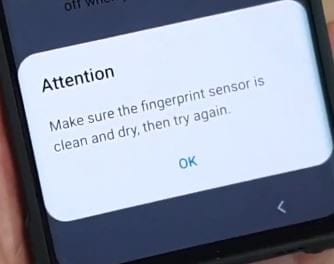
If you use a wrong password or a fingerprint unlock, it can permanently lock your Android device.
We can use many practical methods to remove the Android phone lock screen fingerprint. For example:
According to you, the most typical or initial option must be factory reset. However, when you try the factory reset method, you will lose all data on your phone. So, can you unlock an Android phone without a factory reset? Yes, we will tell you how to unlock your phone without fingerprint and resetting your Android phone.
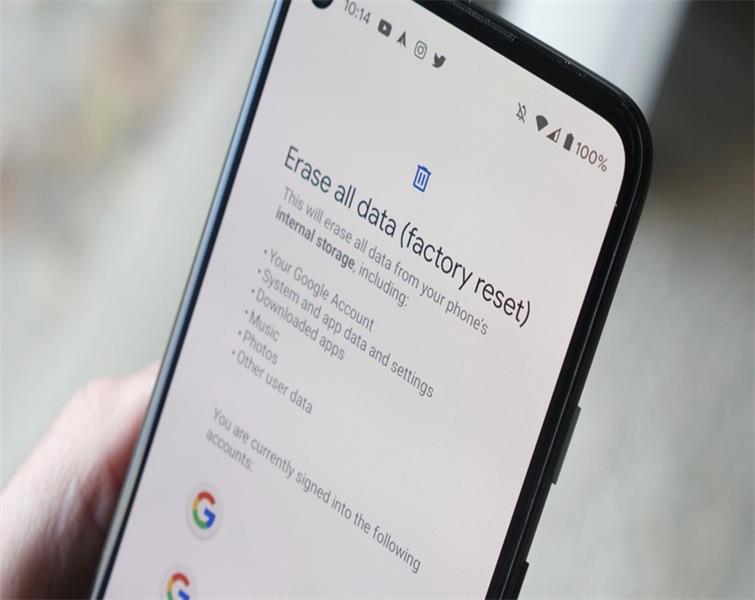
Follow these methods to bypass the fingerprint lock without resetting the phone. It will save you from losing your data. All our methods are very easy and safe.
Useful Methods to Bypass Fingerprint Lock
1. Restart your Phone
If your fingerprint is not working or the Oppo Reno 9A device prompts you with an error in the fingerprint functioning, possibly the fingerprint reader is not responding, and the Oppo Reno 9A device needs to restart to get rid of this error.
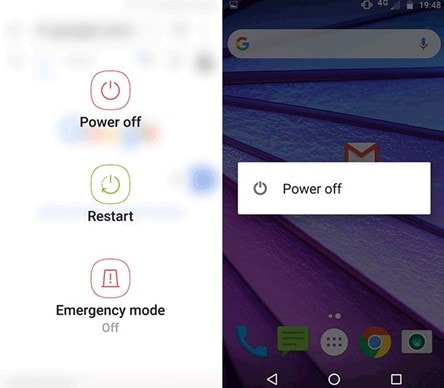
When a device restarts, the fingerprint functionality is restored after entering the Oppo Reno 9A device pattern, password, or PIN. This is the simplest method to reset your fingerprint hardware.
2. Remove your phone battery
Old android phones have removable batteries. If you can remove your phone battery, remove it and then put it back. Now turn on your phone. Doing so can help solve the fingerprint lock issue if there are bugs or system errors.
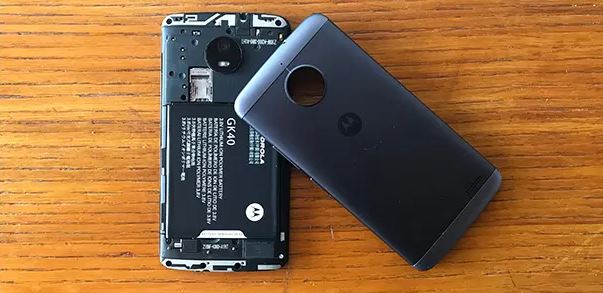
3. Dr.Fone - Screen Unlock
On Android handsets, you can attempt Dr.Fone to remove the fingerprint without professional skills. It allows you to delete the password, PIN, pattern, and fingerprint from an Android phone.
Step 1: Connect your Android device.
Open Dr.Fone on your PC, then among all the tools, choose “Screen Unlock.”

Step 2: Select a device type.
We are in this part to provide you with two ways to unlock practically any Android handset, including those made by Samsung, Huawei, OPPO, Vivo, Lenovo, LG, and others. It’s crucial to choose the right device brand to unlock the lock because the recovery modes for various phone models vary. The list contains every supported device model.
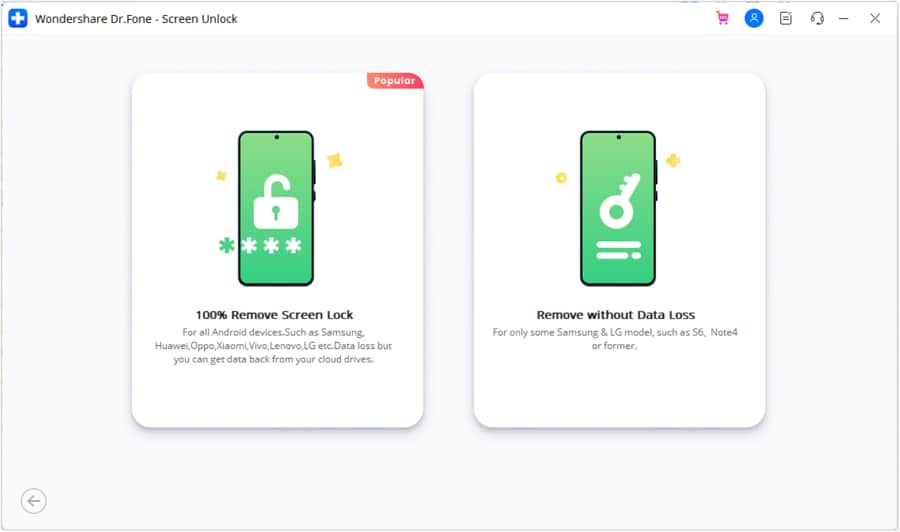
Here you will have some brands to choose from, don’t make it wrong.
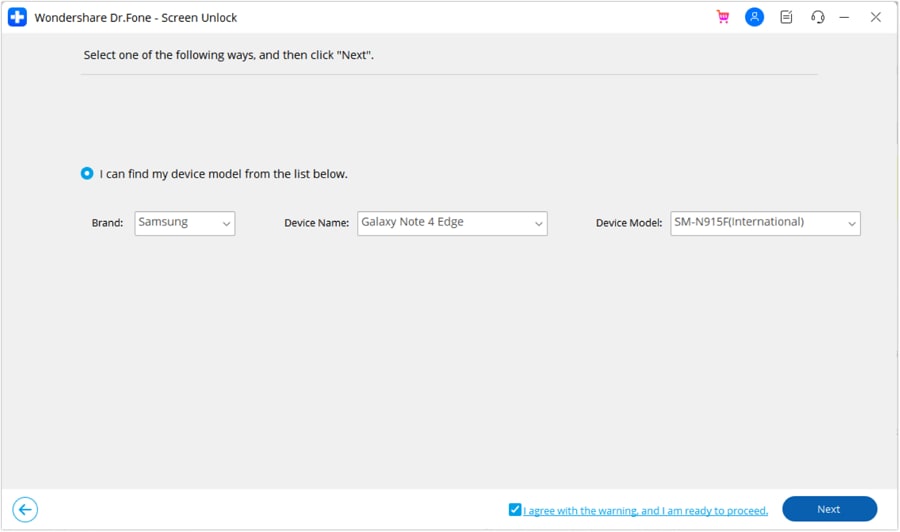
Step 3: Put your device into Recovery Mode.
You will learn how to put your device into Recovery Mode; it’s important to do as instructions, although this part may look a little strange. And there are 3 different Samsung Recovery Modes as examples.
(Get into Recovery Mode in Samsung phone with Bixby)
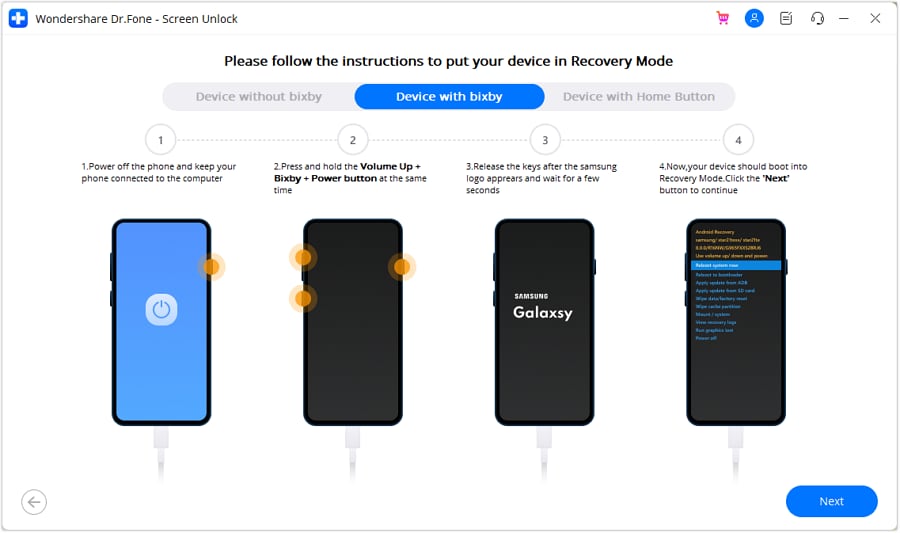
(Get into Recovery Mode in Samsung phone without Bixby)
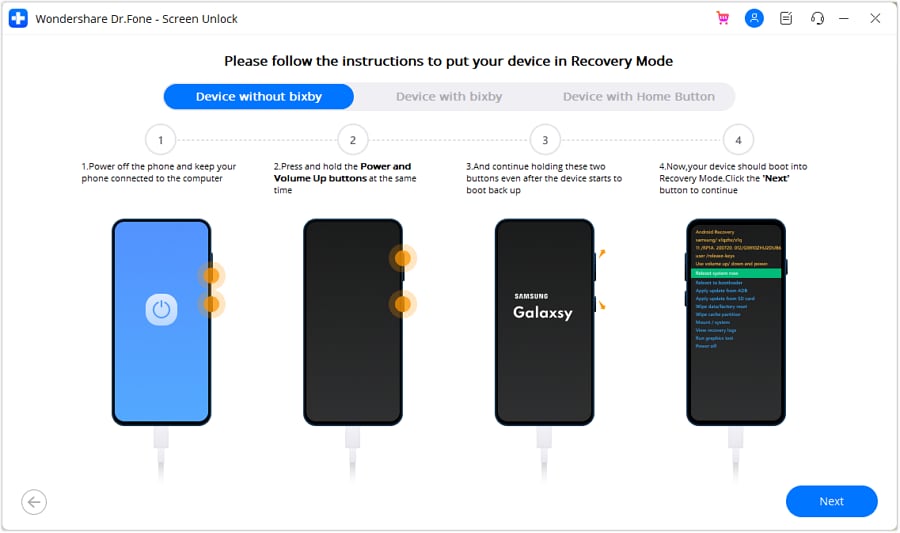
(Get into Recovery Mode in Samsung phone with the Home button)
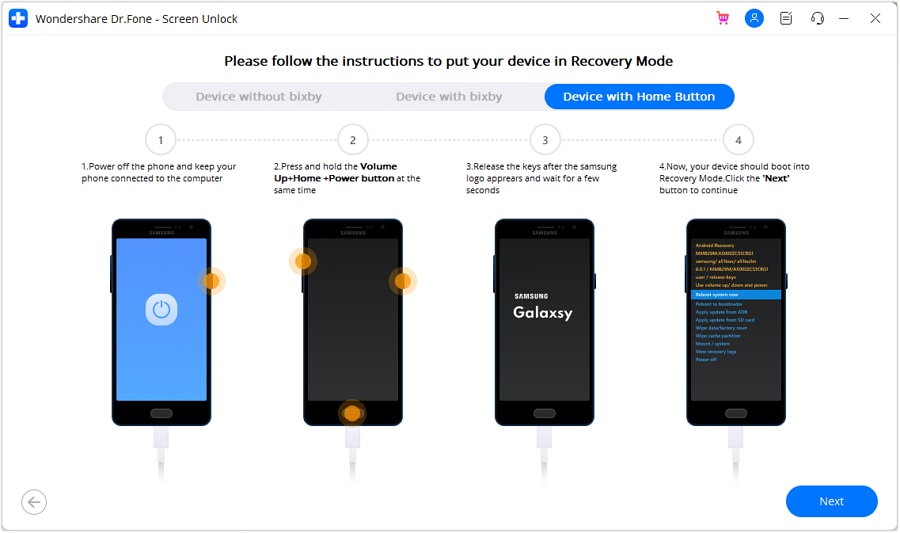
Step 4: Instructions to Wipe Cache Partition
In this part, it is the final but crucial step to unlock your device; if you click any wrong button, your phone may not work anymore.
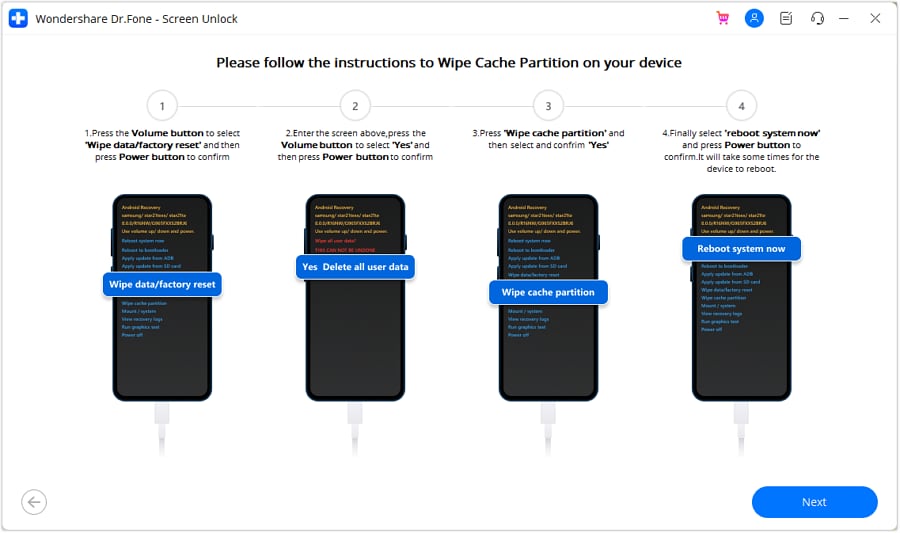
OK, you already passed the unlock process; locks like pattern, password, or fingerprint disappear!
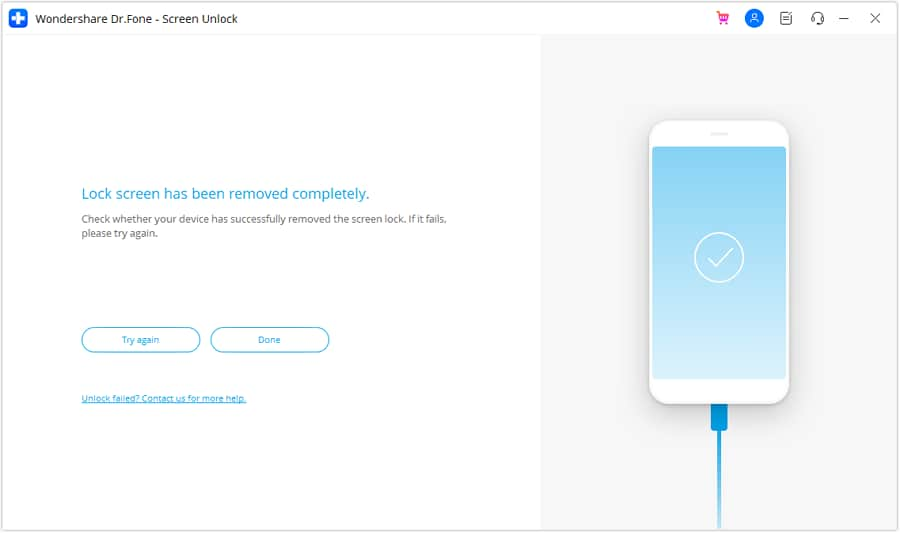
4. Hard Reset your Device
Users of Android smartphones and tablets can troubleshoot various issues with their devices using a feature known as Android Recovery Mode. For example, it might be helpful if you discover that your device is functioning strangely. Recovery Mode Android technically refers to a unique bootable partition with a recovery application installed inside it.
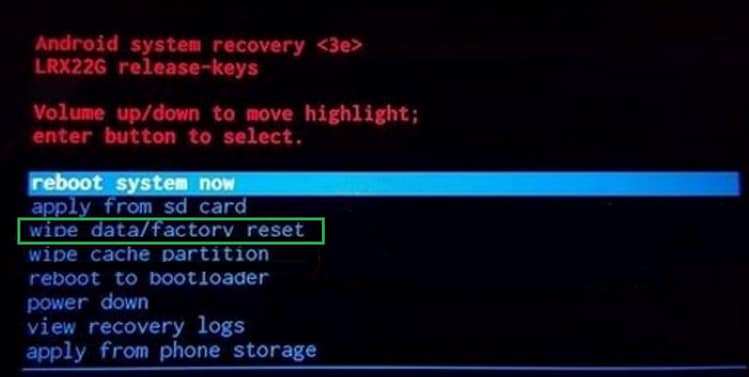
However, users can also use it to reset the android password if it is forgotten. This password also includes fingerprint locks. The instructions for resetting android devices through recovery mode differ for every android device.
5. Google Find My Device
As you are likely aware, every Android device is connected to a Google account. As a result, if you’d like, you may also use it to unlock Android. You’ll need to know your Google account login information for this. When you’re ready, use these instructions to find out how to unlock a phone password.
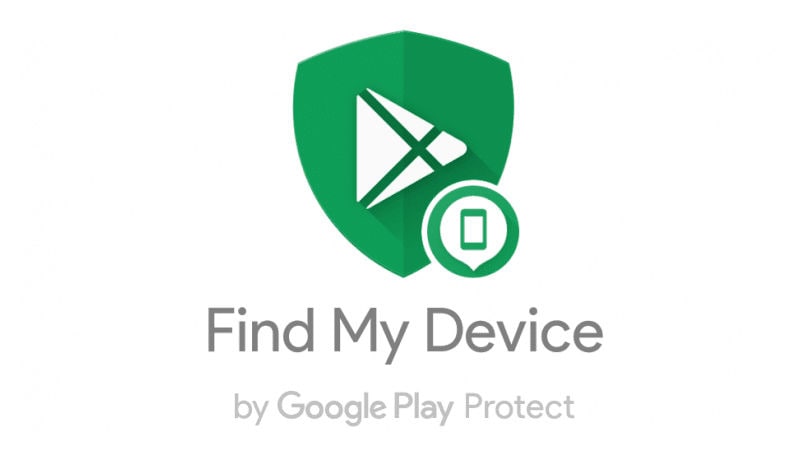
- Login using your Google credentials by going to the official Google Find My Device website.
- You will see the gadgets connected to your Google account as you enter the interface and a map of where they are.
- To wipe the Oppo Reno 9A device, click the ERASE DEVICE option on the left side panel. You will then be required for your password.
- Once more, select “Erase.” This will reset the Oppo Reno 9A device and get rid of the dysfunctional fingerprint lock.
6. Seek Help from Local Dealers
It might be a complicated case if you cannot reset your lock screen fingerprint through the methods described above. In this situation, you need to visit your nearest mobile technician, who can help you restore your device.
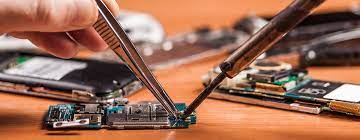
Why does not Fingerprint Work
1. Fingerprint Hardware Module Problems
The fingerprint module should be clean, just like a clean finger is. Unfortunately, the module would collect liquid from your fingers, especially if you had used a moisturizer earlier, making it difficult for the sensor to read your fingers accurately.

Please inspect the fingerprint module for any fluids or debris and clean it with a dry cloth to resolve this. If the dirt is on the module, clean it with wipes or a moist cloth wet with water.
2. Software Update
Another software-related issue that may occur because “ fingerprint sensor not working” issue is a software defect. Try checking if you have a pending update on your device and install it. Moreover, if the problem started after a system update, you may wait for a new update to fix the problem or go back to the previous update.
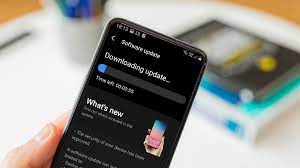
To install an update, open the Settings app, tap on ‘System,’ pick ‘System Update,’ and download and install any pending update.
3. Clean your Screen
If you have a device with under-display fingerprint scanner, you might need to clean the screen properly before using the fingerprint. In some cases, screen protectors also interfere with fingerprint functioning.
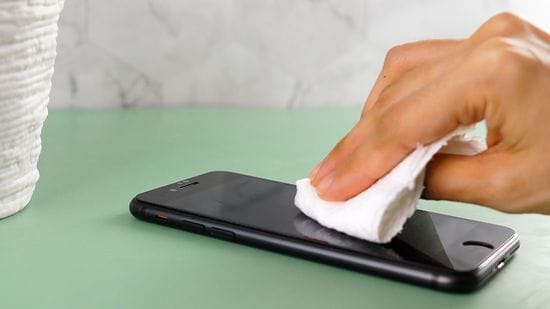
Conclusion
Any method can solve the problems of using your device with your Android handset. The best thing about these solutions is that you don’t need difficult professional skills to complete the tasks. Dr.Fone-Screen Unlock is the easiest way to help your device if you have a password or fingerprint problem.
How To Enable USB Debugging on a Locked Oppo Reno 9A Phone
Unlocking your Android’s potential goes beyond its surface features. Understanding USB debugging is key to troubleshooting and maximizing your device’s capabilities. In simple terms, USB debugging allows deeper access to your phone’s functionalities, aiding in software development and data recovery.
However, enabling USB debugging becomes crucial yet challenging when your phone is locked. This article delves into this necessity, explaining how to enable USB debugging on locked phones, especially for Android users. Unravel the mystery behind this essential feature, empowering yourself to navigate through locked phone scenarios effortlessly.
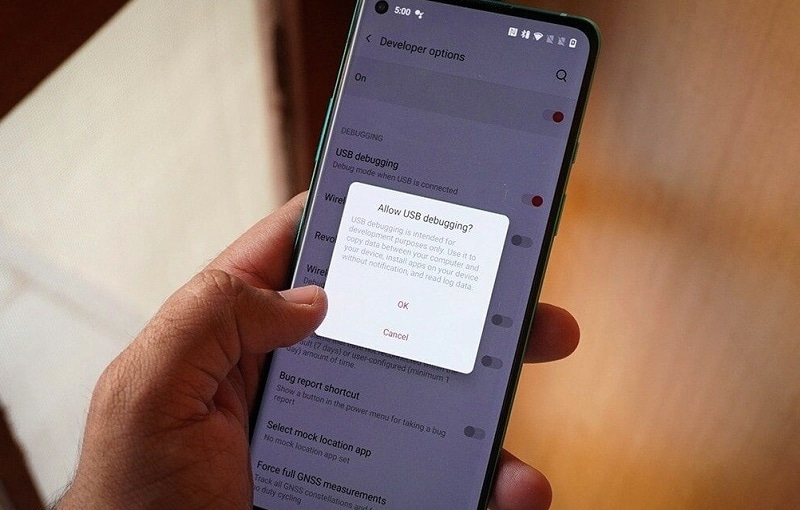
Part I. Challenges in Enabling USB Debugging on a Locked Android Phone
USB debugging is a nifty tool that lets you peek behind the scenes of your Android phone’s software. It’s like having a secret key that unlocks deeper access to your device, enabling tasks like software tweaking, app testing, and even data recovery.

Challenges in Enabling USB Debugging on a Locked Phone
Outlined below are some of the barriers, scenarios, and limitations, shedding light on the challenges that make USB debugging seemingly impossible.
- **Locked-out access.**When your phone is locked, gaining access to the settings becomes a roadblock to enabling USB debugging.
- **Limited functionality.**The phone’s locked state restricts the usual methods of accessing developer settings and USB debugging options.
- **Security measures.**For security reasons, most devices limit access to sensitive settings when the phone is locked, making it tricky to enable USB debugging.
Scenarios Requiring USB Debugging on a Locked Phone
Unlocking your phone’s potential becomes crucial in moments of crisis. Explore below some of the scenarios where enabling USB debugging on a locked Android device becomes your beacon of hope:
- **Data recovery.**Imagine accidentally locking yourself out of your phone with important data inside. Enabling USB debugging could be your ticket to retrieve that precious information.
- **Software troubleshooting.**Sometimes, a locked phone might need software fixes or troubleshooting that requires USB debugging to access certain tools.
- **Device testing.**For developers or tech-savvy users, testing new apps or debugging software issues often demands enabling USB debugging, even when the phone is locked.
Part II. How To Enable USB Debugging on Locked Phones
This section outlines the traditional method of enabling USB debugging on an Android phone. Stay tuned and check out the steps below:
- Step 1: Unlock your device**.** If needed, enter your phone’s passcode or pattern to gain access to the Settings.
- Step 2: Go to Settings, scroll down to About Phone, and tap on Build number seven or eight times to unlock the Developer Options.

Step 3: Once unlocked, return to Settings, find Developer Options (usually at the bottom), and enter the menu. Enable USB Debugging by tapping OK once the Allow USB Debugging? message appears.
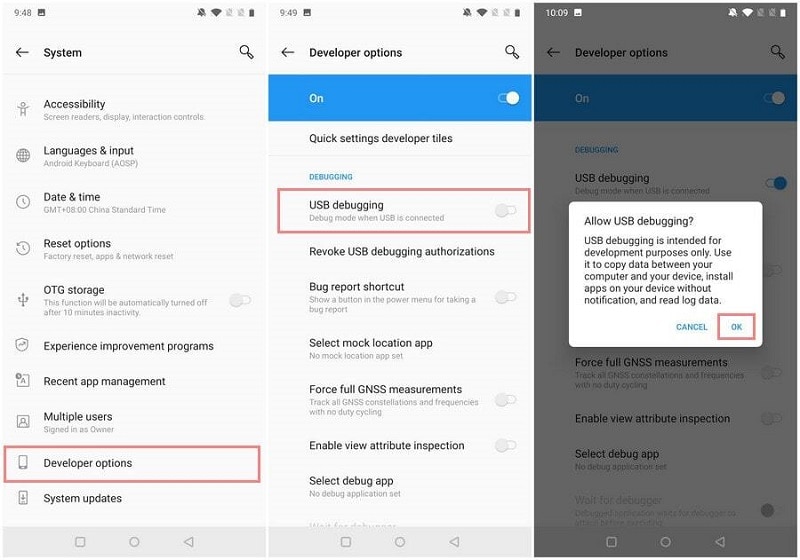
However, what if your phone remains locked, making these steps impossible? Such a case calls for an alternative solution. Fortunately, there is one tool that is fully reliable when it comes to unlocking locked mobile devices. Dr.Fone - Screen Unlock (Android) can help bypass these challenges and enable USB debugging on a locked Android phone effortlessly. So, buckle up as the next section unravels the secrets to unlock your device’s potential!
Part III. Seamlessly Unlock Your Android With a Professional Resolution
Enabling USB debugging on a locked phone can feel like navigating a maze with no clear exit. Sometimes, despite your best efforts, the traditional method fails to grant access. Fret not! There’s a smoother path that unlocks your phone and eases the USB debugging hurdle.

Why Unlocking First Makes Sense
Attempting to enable USB debugging on locked phones can hit roadblocks. That’s why unlocking your device first becomes a game-changer. Dr.Fone – Screen Unlock (Android) is the hero of this story, simplifying the process and ensuring a hassle-free experience.
Key Features and Benefits
Check out the amazing key features and benefits of Dr.Fone – Screen Unlock that fits Android devices:
- **Data safety and reliability.**Your data’s security remains paramount. With Dr.Fone – Screen Unlock, your device’s integrity and precious data stay safeguarded throughout the unlocking process.
- Dr.Fone - Screen Unlock is compatible with a wide range of Android devices, irrespective of brand or model, ensuring accessibility for various users.
- It’s not just about unlocking a locked screen; Dr.Fone offers multiple unlock modes tailored to different scenarios, whether a forgotten password, PIN, pattern, or fingerprint issue.
- **High success rate.**With a high success rate in unlocking locked screens, Dr.Fone - Screen Unlock provides a reliable solution, even for complex lock scenarios.
- **No data loss.**Users can rejoice in the fact that the unlocking process doesn’t compromise data integrity. Your photos, messages, and apps remain untouched and secure.
- **Ease of use.**The software is designed for simplicity, making the unlocking process accessible to users with varying levels of technical expertise.
Tips: Forget your device password and can’t get access to it? No worries as Dr.Fone is here to help you. Download it and start a seamless unlock experience!
Guide To Unlock Your Oppo Reno 9A With Dr.Fone – Screen Unlock (Android)
Below are the steps on how you can unlock your Android device using Dr.Fone:
Step 1: Get the most recent version of Wondershare Dr.Fone and connect your Android device to your computer via a USB cord. After connecting, access the unlock screen tool by going to the Toolbox and then selecting Screen Unlock.
Step 2: Once prompted, choose Android to unlock your Android screen lock. On the following screen, you’ll see two options; choose Unlock Android Screen.
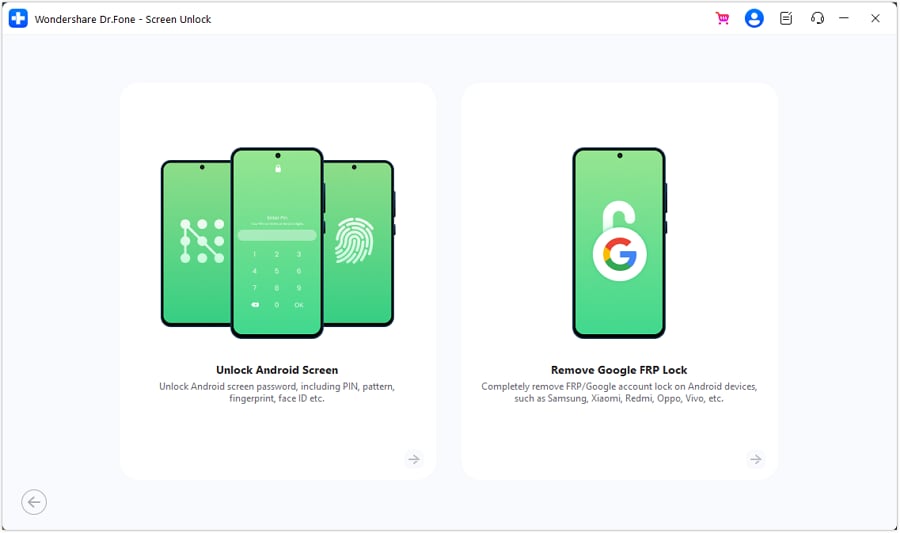
- Step 3: After that, you’ll be taken to a new screen where you can choose the brand of your mobile device.
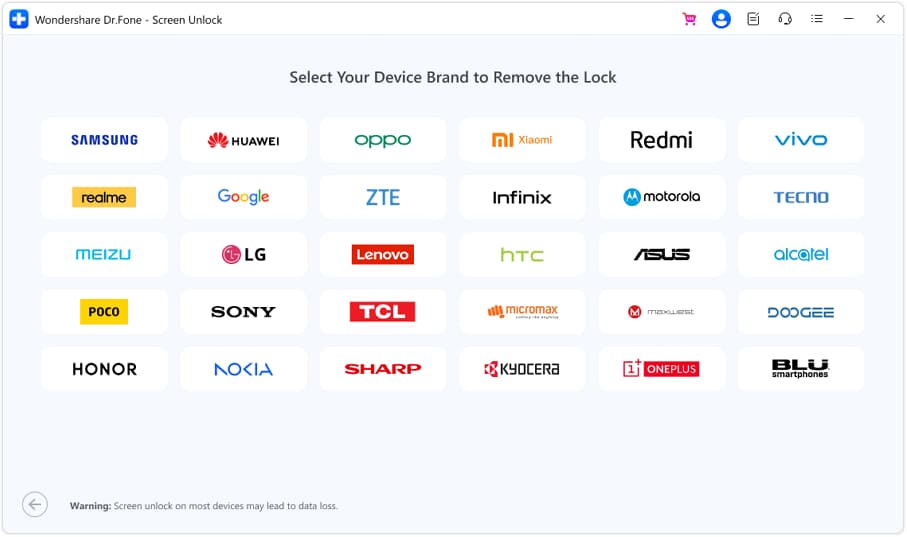
- Step 4: Once done, click the Remove without Data Loss button from the two options presented on the screen.
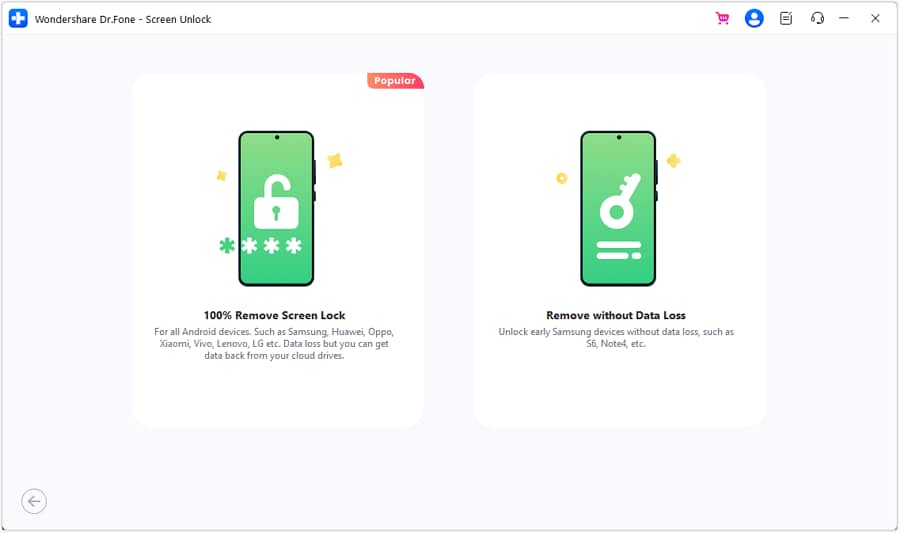
- Step 5: Unlocking the Android screen requires choosing the Brand, Device Name, and Device Model next. Enable the option that says I agree with the warning, and I am ready to proceed by clicking the corresponding checkbox. To proceed with unlocking the screen, click Next.

- Step 6: Type 000000 when asked to confirm the process. After entering the code, click Confirm to run the program.
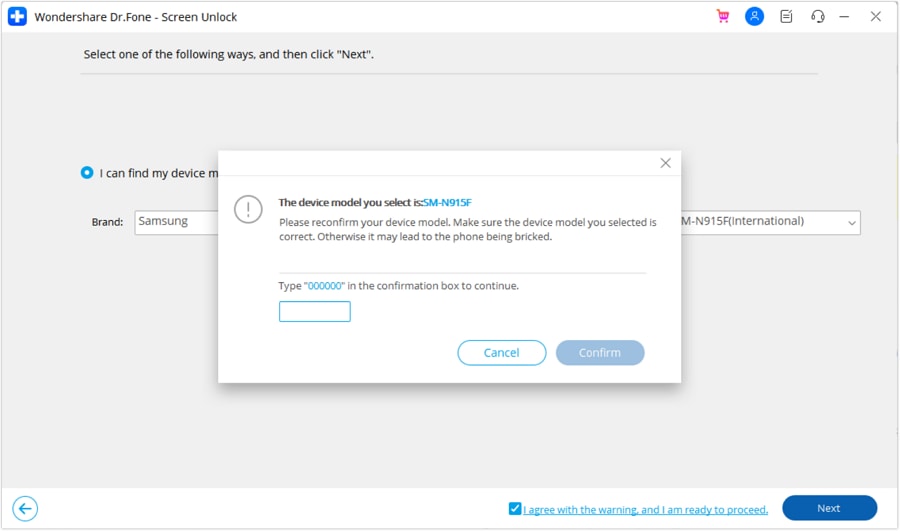
- Step 7: Once you’ve recognized your Android device’s model, Dr. Fone will walk you through entering Download Mode. Following the on-screen prompts will take you directly to the next screen. It then depicts the progress of the screen unlocking procedure, in which the platform’s required drivers and configuration files are downloaded.
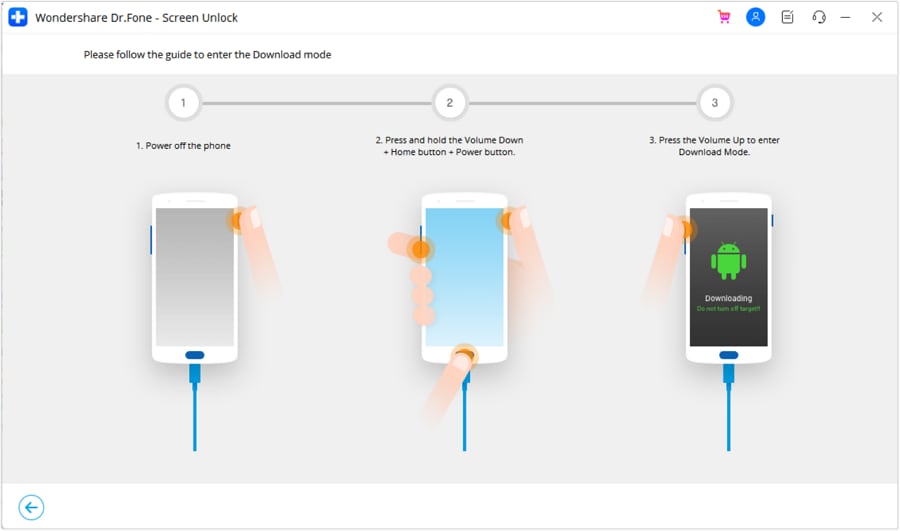
- Step 8: A new screen will appear, indicating the process has been completed. Click Done if your device’s screen unlock issue has been successfully fixed. If not, click the Try Again button.
Dr.Fone – Screen Unlock (Android) acts as your trusty guide, leading you through the maze of locked screens and inaccessible settings. It unlocks your phone first and enables USB debugging without the frustrating barriers.
Learn More About Android Unlock:
Samsung Unlock Codes to Unlock Samsung Phones [2024 Updated]
Unlocking Your Realme Phone Made Easy: No Data Loss!
The Best Android Unlock Software of 2024
Conclusion
In face of locked screens, USB debugging is a beacon of access and troubleshooting for your Android device. Remember, enabling USB debugging on a locked phone is crucial, opening doors to unforeseen solutions. However, what if you want to enable USB debugging on locked phones, but the process gets messy?
Then, it’s time to consider Dr.Fone - Screen Unlock (Android). It effortlessly paves the way to enable USB debugging on locked phones. By ensuring your device’s security and accessibility, even in locked states, Dr.Fone empowers you to navigate through obstacles, safeguarding your data while unlocking endless possibilities.
How to Show Wi-Fi Password on Oppo Reno 9A
Since the invention of Android OS in 2008 by Andy Rubin, our world has faced a dramatic change. Android seems to be controlling a considerably high portion of our life. We have bought many gadgets that use this amazing OS and most of which are phones. But how much can you do with your Android phone? Developers are always making it more interesting to use this interface.
Most of the time, we use Android phones, we get faced with the need to access the internet. The Wi-Fi capability of these Android gadgets makes it super easy for us to surf the web. Throughout using Wi-Fi, we connect to a number of them. This could be at school, a sub-way café, the gym, buses, hospitals, hotels, towns, and the list is endless. A password secures most of this. Needless to say, our brain is weak to store all these passwords for future use, especially if you would want to connect with a different gadget you have recently bought or even your laptop. In this article, we will introduce you to how to find wifi password on rooted and also unrooted Android devices.
Part 1: Show Wifi Password on Rooted Android Device
What is Rooting?
First of all, what does rooting mean? You have probably used a Windows computer or even Linux. For the case of Windows, when installing a new program or software, it always prompts a dialog box saying, “Administrator permission required to run this program.” If you don’t have the administrator permission, you won’t install the program. In Android, this is called rooting. In simple terms, it means having the root permission to your phone. Some Android apps will require you the root permission, e.g., flashing your ROM. In this part, we will explain how you can show the Wi-Fi password on your Android with root.
To find the Wi-Fi passwords on your Android phone, you need to have an app to explore files which also supports a root user. In this case, ES FileExplorer or Root Explorer will come in handy. However, it turns out that the latter is offered at $3. Let’s use the free ES File Explorer.
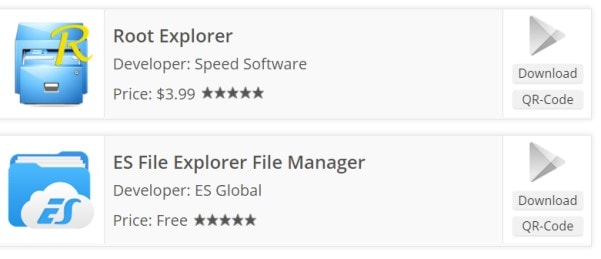
Steps of getting Wi-Fi password on Android with root
In only four steps, we, at this moment, learn how we can find the password of a Wi-Fi on an Android phone.
Step 1: Install the ES File Explorer
Download the ES File Explorer from your play store, install it, and open it.

Step 2: Enable Root Explorer
The root explorer needs to be enabled so that you can reach the root folders of the Wi-Fi passwords you need. By default, the root feature in this ES explorer is not enabled. To enable it, just tap on the list menu on the top left corner.:
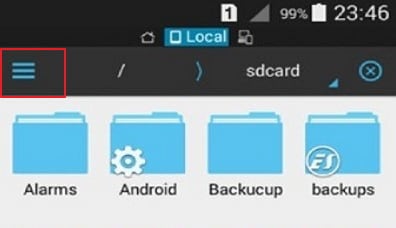
This will drop down a list of controls. Scroll down and find the Root Explorer option and enable it.
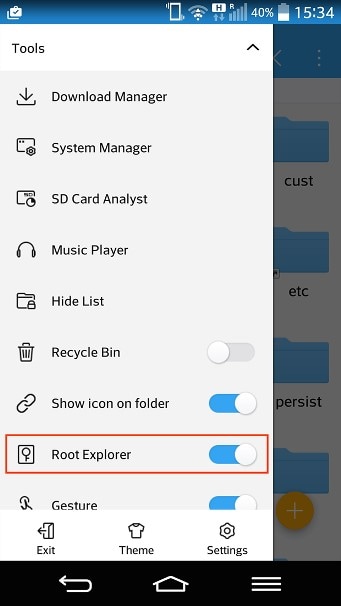
Step 3: Get the passwords’ file.
Go back to ES file explorer, and this time, find the folder named data.
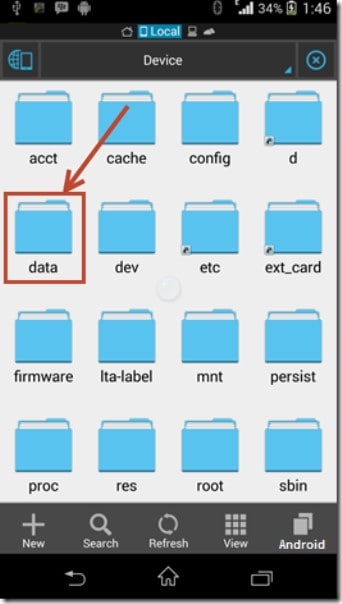
When this folder opens, find another one named misc. Open it and find another one named wifi. Here, find a file named wpa_supplicant.conf.

Step 4: Retrieve the wifi password on Android
Make sure that you don’t edit anything in the file. You might mess up with important data and fail to access the Wi-Fi(s) in the future.
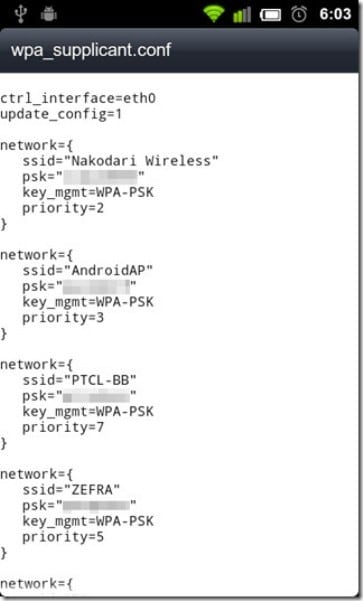
As you can see above, we have found the Wi-Fi passwords on the android device. On each network profile, we have the name of the network represented by name (ssid=”{the name}”), the network’s password represented by psk, the network’s access point represented by key_mgmt=WPA-PSK and its priority represented by priority.
Part 2: Show Wifi Password on Android without Root
What if I don’t have root access to my Android, can I still see Android Wi-Fi password? The short answer is yes. However, this is a bit involving but simple. You don’t need to be a computer guru to do it, but you need to have a computer and some internet access of course. The key thing is to find a way through which we can fetch the password file from the phone without using a root access protocol in the Android. This is made possible by some little programming insight using the Windows Command prompt.
Steps to show Wi-Fi password on Android without root
Step 1: Access the Developer authority
To access the files that Android uses to run passwords, you must first become a developer. This is very simple.
Get your Android phone and go to settings. Scroll down and find “About phone.” Tap on it and scroll down again to find Build number.

Tap on this “build number” 5 to 6 times until a message pops up, saying, “You are now a developer”.
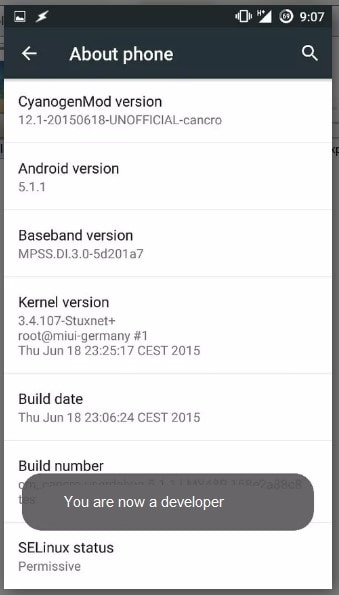
Step 2: Enable the debugging.
Go back to Settings. Scroll down for developer options. Turn on the button for “Android/USB debugging”.
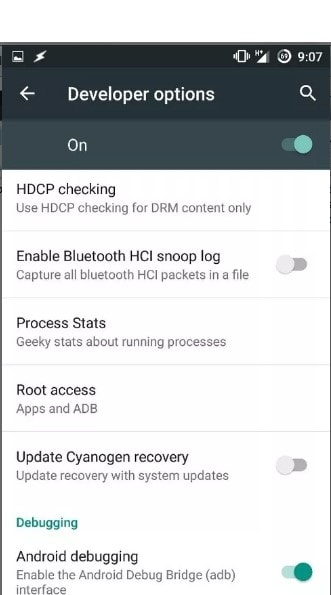
Step 3: Install ADB drivers.
Now, open your Windows desktop. Download and install ADB drivers. (Use this download link adbdriver.com ). You need to download and install platform tools (minimal ADB and fastboot) from http://forum.xda-developers.com/... Now open the folder where you’ve installed the above tools. By default, it is in the Local disc C\windows\system32\platform_tools location. However, you might want to locate them by searching on the windows search engine. You have to hold the Shift key and right-click inside the folder to click on”Open Command Window Here.”
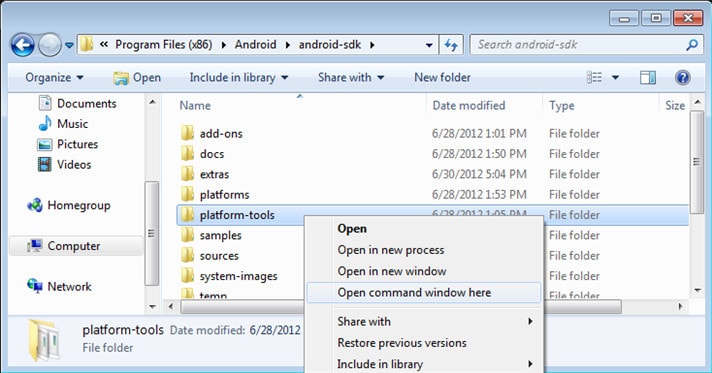
Step 4: Test the ADB
Here, we would like to test whether the ABD is working properly. To do this, connect your phone to the PC using a USB. In the command prompt, type adb services and then press enter. If it’s working properly, you should see a device on this list.

Step 5: Find the Android wifi password.
Now, it is time to type the given command in the command prompt and type: adb pull /data/misc/wifi/wpa_supplicant.conf c:/wpa_supplicant.conf. This will fetch the file from your phone to the local disc C drive of the PC.
Step 6: Get the wifi passwords.
Lastly, open the file with a notepad, and there you go.
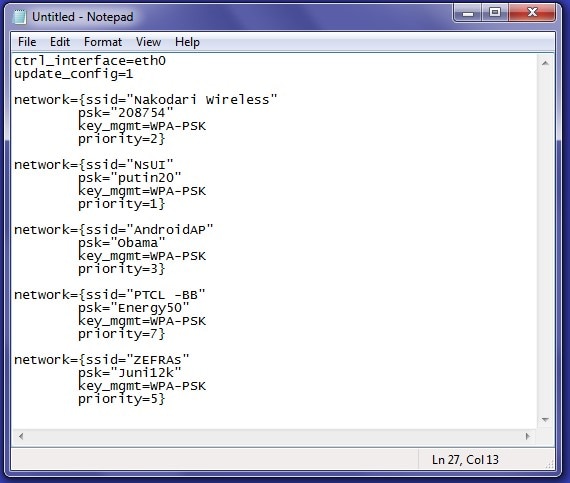
Now you learned how to show the wifi password on your Android device.
Also read:
- [New] In 2024, Ensuring Quality Export of Camera Images for Snapchat Sharing
- [New] In 2024, How to Implement Google Meet's Grid View Feature
- [New] In 2024, Your Guide to Youtubian Beginnings Establishing a Channel and Earning Money
- 10 Easy-to-Use FRP Bypass Tools for Unlocking Google Accounts On Nokia C110
- Get Ready To Meet Your New AI Conversation Partner
- How to Unlock iCloud lock on your iPhone 14 Pro and iPad?
- How to Use Google Assistant on Your Lock Screen Of Oppo Reno 10 5G Phone
- In 2024, 7 Ways to Unlock a Locked Honor Magic 6 Pro Phone
- In 2024, Forgotten The Voicemail Password Of Oppo A1x 5G? Try These Fixes
- In 2024, How To Enable USB Debugging on a Locked Oppo A56s 5G Phone
- In 2024, How To Remove Screen Lock PIN On Nokia 130 Music Like A Pro 5 Easy Ways
- In 2024, How To Unlock Any Realme C53 Phone Password Using Emergency Call
- In 2024, Pattern Locks Are Unsafe Secure Your Poco F5 5G Phone Now with These Tips
- In 2024, Top 4 SIM Location Trackers To Easily Find Your Lost Nubia Red Magic 8S Pro Device
- New Unlock Your Creativity Top 10 Animation Tools for Beginners and Experts for 2024
- Resolving Missing Vcomp.dll Files on Your Computer – Effective Strategies and Tips
- Step-by-Step Methods for Amassing TikTok Videos for 2024
- Title: In 2024, Remove the Lock Screen Fingerprint Of Your Oppo Reno 9A
- Author: Aaron
- Created at : 2024-10-06 21:43:50
- Updated at : 2024-10-09 23:17:27
- Link: https://easy-unlock-android.techidaily.com/in-2024-remove-the-lock-screen-fingerprint-of-your-oppo-reno-9a-by-drfone-android/
- License: This work is licensed under CC BY-NC-SA 4.0.